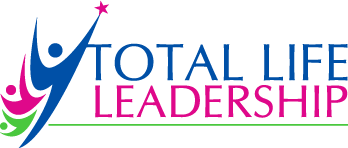The One Thing All Great Leaders Have
Do you ever wonder how you’re being perceived by those around you? Have you ever said or done something that was misinterpreted by others? Do you know what you’re good at – but also what you’re not so good at?
If you’re nodding your head “yes” to these questions, then you’re already using the most important tool in your leadership tool kit -- self-awareness.
Google the definition of self-awareness and you’ll find this description: “conscious knowledge of one's own character, feelings, motives, and desires.” The trusty Merriam Webster dictionary defines it as the “knowledge and awareness of your own personality or character.”
But why is self-awareness so important?
Simply put, there is a positive correlation between self-awareness and leadership success. Research confirms this relationship:
· In 2010, Green Peak Partners released a study conducted in conjunction with Cornell’s School of Industrial and Labor Relations. The study looked at 72 executives at public and private companies with revenues of between $50 million and $5 billion. The study showed a high self-awareness score was the strongest predictor of overall leadership success, including the organization’s financial performance. The executive summary stated:
“This is not altogether surprising as executives who are aware of their weaknesses are often
better able to hire subordinates who perform well in categories in which the leader lacks
acumen. These leaders are also more able to entertain the idea that someone on their team
may have an idea that is even better than their own.”
---------------------------------------------------
· For over 30 years, Dr. Donald Clifton, the father of Strengths Psychology, in partnership with the Gallup organization, conducted over 20,00 interviews with people in leadership roles across industries and occupations. They also acquired performance data from those leaders to compare the best leaders to those who were less successful. What they discovered is that there’s no one strength that all the best leaders shared.
A few months before his death, Clifton was asked about his greatest discovery from his decades of research. In the book Strengths Based Leadership by Tom Rath, he responded:
“A leader needs to know his strengths as a carpenter knows his tools, or as a physician knows the instruments at her disposal. What great leaders have in common is that each truly knows his or her strengths – and can call on the right strength at the right time. This explains why there is no definitive list of characteristics that describes all leaders.”
How do I add self-awareness to my leadership tool kit?
Adding self-awareness to your leadership tool kit begins with recognizing the need. Whether you lead a large multi-national corporation, a locally-owned business, or a family, self-awareness will contribute to your success.
Once you recognize the need, self-awareness is a skill you build with practice and intentionality.
To get started, imagine yourself in a given situation, then shift from being a participant to being an observer. Visualize putting on a hat with a big “O” on it. With your observer hat on, here are some questions to ask yourself throughout the day:
• What’s really happening in this moment?
• What am I feeling right now?
• Why am I saying/doing these things?
• What assumption am I making about the person/situation?
• What’s my intention in this situation?
• Does my intention match my behavior?
• What result am I trying to achieve?
Don’t judge yourself. Simply use these questions to help you get your bearings. Once you get your bearings, you are better able to determine the next step.
If you find yourself angry and upset, ask a self-awareness question that will allow you to pause and make a better determination on how to respond.
If you observe that others are not responding in the way you expect, ask a self-awareness question that will allow you to adjust your message or action to get better results.
When you practice self-awareness on a regular basis, you begin to identify your strengths. With this knowledge, you can then begin to identify the strengths you need in others to shape a strong and productive team.
Self-awareness is one of 10 disciplines I help organizational leaders master so they and their businesses can thrive. If you’d like to know more about these disciplines, please contact me at gayle@total-life-leadership.com.
